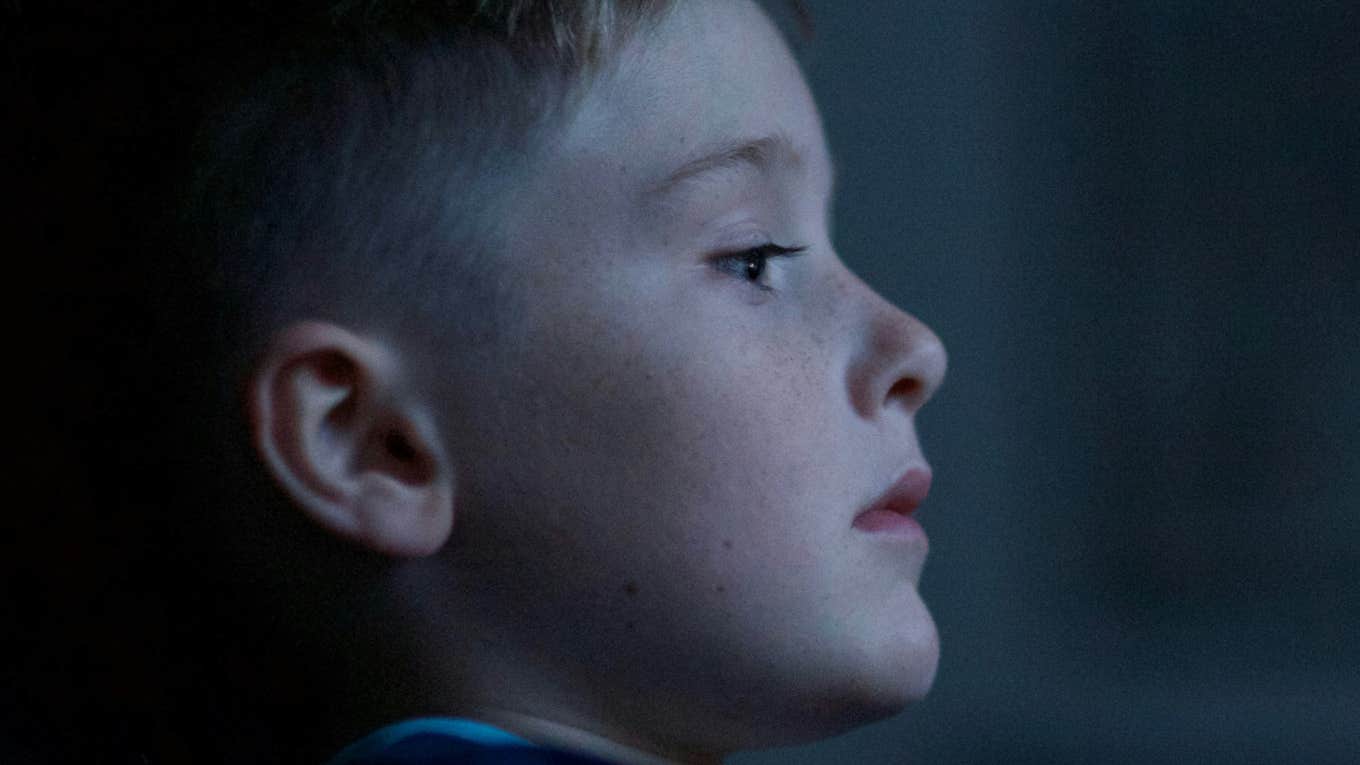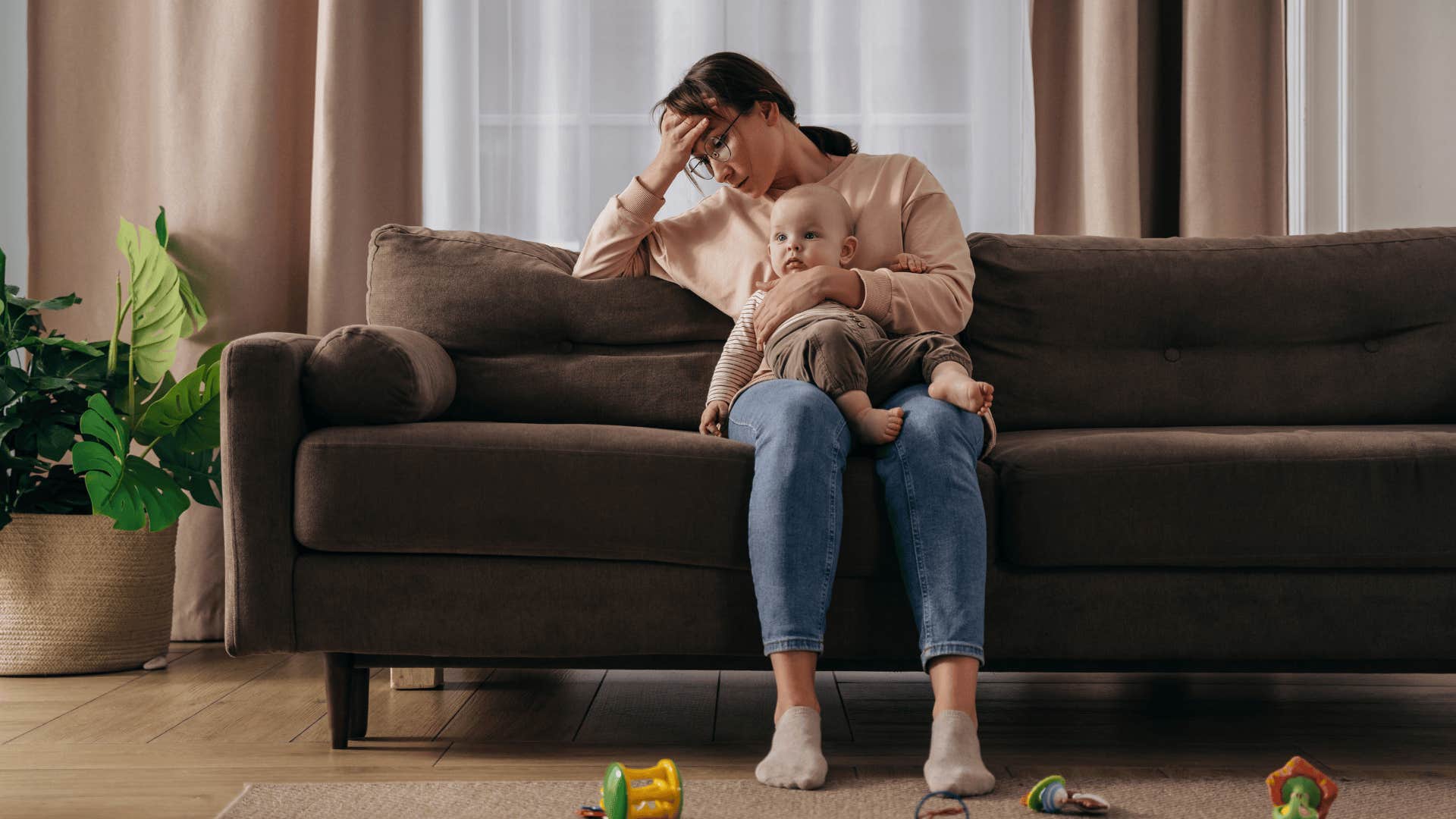5 False Beliefs You Carry From Growing Up In A Dysfunctional Home, According To Clinical Psychologist
Brains raised in dysfunctional families lie like it’s their job.
 Luke Pennystan | Unsplash
Luke Pennystan | Unsplash Here are five total lies that your brain tells you if you were raised in a dysfunctional home and/or if you struggle with depression. Your brain tells you these lies because your brain is impacted by your parents (who were impacted by their parents) and society as a whole, not to mention your past relationship history. All of these statements are lies.
As a clinical psychologist, I don't have to know your individual unique lying brain to tell you that these are lies. If you truly take this post to heart, your mind will be blown and you will not have to listen to your lying brain anymore, because you will recognize these lies and reach out to a therapist who can confirm it.
Note that the reason you need to understand that these are lies is because thinking they are true can cause tremendous shame. Shame makes people feel paralyzed to their core, so they try to push whatever is causing their shame out of their minds and therefore they cannot address it and change for the better. Guilt is healthy; this is when you think you did something wrong and you want to repair it. Shame is when you feel you are something wrong and there is no hope to even try and change.
Here are the false beliefs you carry from growing up in a dysfunctional home:
1. 'I’m too unattractive for anyone to love me'
 Gorodenkoff / Shutterstock
Gorodenkoff / Shutterstock
This is a whopping lie. It derives from having one of your parents treat the other like garbage or one parent’s bad body image or from your days of peer rejection as a child or media garbage.
In the most rational scenario, perhaps your actual partner is not attracted to you. Even this is not because you are too unattractive for anyone to love you. Your partner has their brain and their background and experiences, so if they decide they aren’t attracted to you anymore, this stinks but I swear to you that other people could be attracted to you, and in the days of internet dating every pot has a cover and most pots have hundreds of potential covers in a 50-mile radius.
2. 'I’m a bad parent'
 Arsenii Palivoda / Shutterstock
Arsenii Palivoda / Shutterstock
If you do not purposefully and intentionally abuse or neglect your child, you are not a bad parent. A bad person is by my definition a sociopath who intends to harm others, and even then this definition is shorthand and not true because there had to be some awful childhood that created such an individual.
3. 'I’m stupid'
 Krakenimages.com / Shutterstock
Krakenimages.com / Shutterstock
Who told you this? Your mom, your dad, your sibling, or a teacher? If you had a different upbringing than your own, one where you were not told that you were dumb, your same life history would be seen by you as indicative of your intelligence, savvy, creativity, and so forth.
Because of whatever experiences you had, though, you see everything through the lens of being stupid, inferior, or inadequate. Lying brain strikes again.
4. 'Nobody likes me'
 Perfect Wave / Shutterstock
Perfect Wave / Shutterstock
Listen, everyone is on a different place on the likability spectrum, but if you believe that nobody likes you, that is for one of two reasons: (a) you don’t try hard enough to make friends because you think nobody will ever like you. After all, your brain is lying to you because your family or early peer experiences made you think this, or (b) there is no (b).
Because of low self-esteem derived from a difficult early life, your brain is shackling you with the misapprehension that in the age of the internet and volunteering at animal shelters and going to church and whatever else, you are the lone human who can make zero connections. Don'tlet your brain tell you this fabricated lie.
5. 'Everyone else is better than me' or 'My partner is better than me'
 Josep Suria / Shutterstock
Josep Suria / Shutterstock
Why? Because you were the non-preferred or “worse” (worse grades, usually) sibling pr you saw one parent act like the other was better than they were.
Reasons cannot include: “Because it’s just a fact, also look how ugly I am and nobody likes me.” That belief comes directly from your lying brain and will be caught by my lying brain spam filter.
Depression, low self-esteem, and feelings of inadequacy are about as un-funny as it gets. If you recognize yourself and your own lying brain in any of these statements, you are likely either actively depressed or have a lot of sadness and grief from childhood pain that has not been worked through (or both). Nobody deserves to live life trapped inside a lying, negative, nasty brain that tells you how terrible you are all the time.
Please reach out for help to a therapist even (especially!) if you think you are the one person for whom this post does not apply because you are as bad as you think you are and you have a body of evidence to prove it.
Dr. Samantha Rodman Whiten, aka Dr. Psych Mom, is a clinical psychologist in private practice and the founder of DrPsychMom. She works with adults and couples in her group practice Best Life Behavioral Health.

